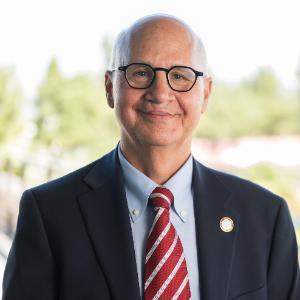repairing the harm done to others and to our world, remembering with enduring love each precious life lost, renewing our covenant–our timeless promise–to care deeply for each other, respecting the dignity of every human being, and rededicating ourselves to work together for justice, reconciliation, and peace.
In this same spirit of re-creation, at the Jubilee of Workers of Justice, Pope Leo XIV recently reminded thousands of legal professionals gathered in Rome that true justice unites the dignity of the person and loving relationships with shared structures, laws, and rules that serve the common good. Justice depends on the rule of law, and justice also demands that the law be actualized by us in the most relational and humane way possible: “It is the power of forgiveness, which is proper to the commandment of love, that emerges as a constitutive element of a justice…”
Pope Francis likewise taught us that “only the law can constitute the indispensable prerequisite for the exercise of any power, and this means that the responsible government bodies must ensure respect for the rule of law, regardless of the dominant political interests.”
As Professor Evangeline (Vangie) Abriel beautifully expressed in opening our first Dean’s Democracy Series forum in the new academic year, our Jesuit, Catholic mission depends on working together to uphold our precious democratic values and the rule of law as powerful instruments of fairness, decency, and justice.
The Dean’s Democracy Series provides a range of forums for robust and respectful dialogue dedicated to upholding those principles, which are indispensable to a healthy and vibrant democracy. The Center for Social Justice and Public Service and the student chapter of the American Constitution Society opened this year’s “Rule of Law” series with a discussion on What Do We Mean When We Say ‘Rule of Law’?, featuring Professors Vangie Abriel, Eric Goldman, Zahr Said, Nicholas Serafin, and David Sloss.
On September 22nd, in a discussion on The Original Meaning of Birthright Citizenship: Why the Current Administration Has it Wrong, distinguished Professor and legal historian, Paul Finkelman, presented his analysis of the guarantee of birthright citizenship in the Fourteenth Amendment, drawing on his vast knowledge of legal history.
In the days ahead, the Dean’s Democracy Series and our Law Student Organizations will provide additional enlightening forums (highlighted below) that we invite you to attend and extend to your networks.
In this season of renewal, our Santa Clara Law community is working together for justice and reconciliation by promoting the rule of law’s core principles, including the nonviolent resolution of disputes through evidence-based discourse, reflective dialogue, and the independent judicial application of fair, stable, and predictable processes, rules, and remedies.
Let the New Year arrive with all of its Blessings!
With warm regards and tremendous gratitude,

Michael J. Kaufman
Dean and Professor of Law
Santa Clara University School of Law


